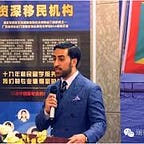Is All Suffering Equal? Effective Altruism and Moral Dilemmas
In an interview earlier this summer on NPR, Peter Singer shared the story of how he became a vegetarian. It was a perfect segway to one idea that has always motivated him — “we must consider what will most reduce suffering and increase happiness.”
During the interview, Peter Singer discussed the incomparable impact of the COVID-19 pandemic and the challenging choices we confront today as the world deals with multiple moral dilemmas.
Intuitions That Produce Moral Judgment Are Often Biased
Peter Singer’s book, The Life You Can Save, was released in 2020 as a free ebook and audiobook.
Michael Schur, the creator of The Good Place, wrote this preface to the 2019 updated edition:
“At its core, Singer’s book asks us to consider a very simple truth: a life is a life, no matter where that life lives. A human being over there is no less valuable than a human being over here.”
In a riveting and perhaps sometimes uncomfortable interview, Peter Singer offers a counterintuitive paradigm for decision-making. Ordinarily, he suggests, we listen to the voice of consciousness, our heart, and this should be enough. But it’s not, and ultimately, we may make a decision that has a more harmful impact than intended.
Singer says that “the intuitions that produce moral judgment are often biased; it’s far better to rely on logic.” There might be circumstances that compel an action that appears to be wrong on its face. Yet, our decision’s outcome achieves the greatest good. Singer reminds us that there are no moral absolutes; no one particular response is appropriate for every circumstance. Make decisions with logic, and you may not feel better, but you will do something much more profound.
Achieving the Greatest Good
As corporate leaders, we often face difficult choices that require mathematics and not our hearts. For instance, our revenues are not where they need to be if we’re going to survive. Logically, we know that by cutting certain expenses, we can ride it out and come out on the other side stronger. But, that belt-tightening requires closing down departments or offices. There is no denying that a decision to cut staff could cause hardships. However, this precise step enables us to do the greatest good — keep the company afloat and continue to pay a more streamlined team.
In the future, we may be able to rehire some of those employees if they’re available. If we sink, everyone loses their job. Depending on our footprint in the community, our collapse could impact not only our employees and customers but all the businesses in the community that derive benefit from our success.
Conclusion
Engaging our logic to identify the measurable outcomes that reduce suffering and increase happiness compels us to move past what Peter Singer calls the “identified victim effect.” Intuitively, we’re more motivated to help those we see in front of us, especially if we know them personally. Yet, the greatest good we can do might be to support an effort to distribute mosquito nets in Africa, for instance, to stop the spread of malaria deaths. We’ll most likely never see the people we’ve saved. We won’t have the same “feel-good moment.” But we will have achieved the greatest good. We can apply this to our charitable giving and to the decisions we make in the corporate boardroom.
